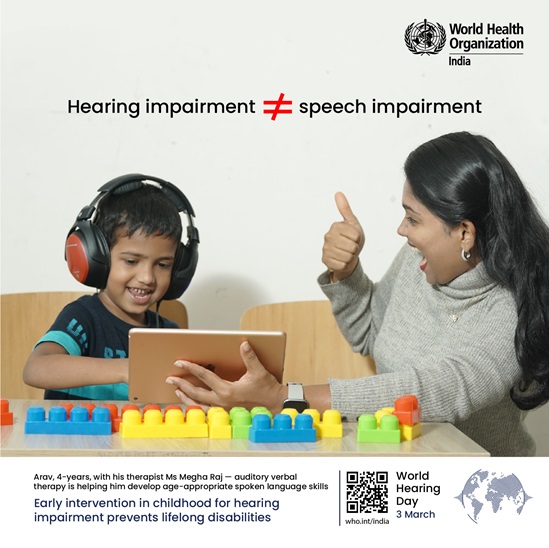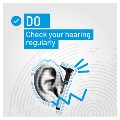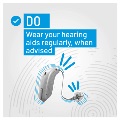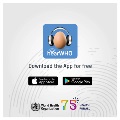World Hearing Day 2023

© WHO India
©
Credits
Ear and hearing care for all! Let’s make it a reality
Hearing loss is the most common sensory deficit in humans today. WHO estimates that in India there are approximately 63 million people, who are suffering from Significant Auditory Impairment. Early identification of hearing loss and ear diseases is key to effective management.
- This requires systematic screening for detection of hearing loss and related ear diseases in those who are most at risk:
- Newborn babies and infants
- Pre-school and school-age children
- People exposed to noise or chemicals at work
- People receiving ototoxic medicines
- Older adults
- Hearing assessment and ear examination can be conducted in clinical and community settings. Tools such as the WHO “hear WHO” app and other technology-based solutions make it possible to screen for ear diseases and hearing loss with limited training and resources.
- Once hearing loss is identified, it is essential that it is addressed as early as possible and in an appropriate manner, to mitigate any adverse impact.
- Measures available to rehabilitate people with hearing loss include:
- the use of hearing technologies, such as hearing aids, cochlear implants and middle ear implants;
- the use of sign language and other means of sensory substitution, such as speech reading, use of print on palm or Tadoma, signed communication; and
- rehabilitative therapy to enhance perceptive skills and develop communication and linguistic abilities.
- The use of hearing assistive technology, and services such as frequency modulation and loop systems, alerting devices, telecommunication devices, captioning services and sign language interpretation, can further improve access to communication and education for people with hearing loss.













